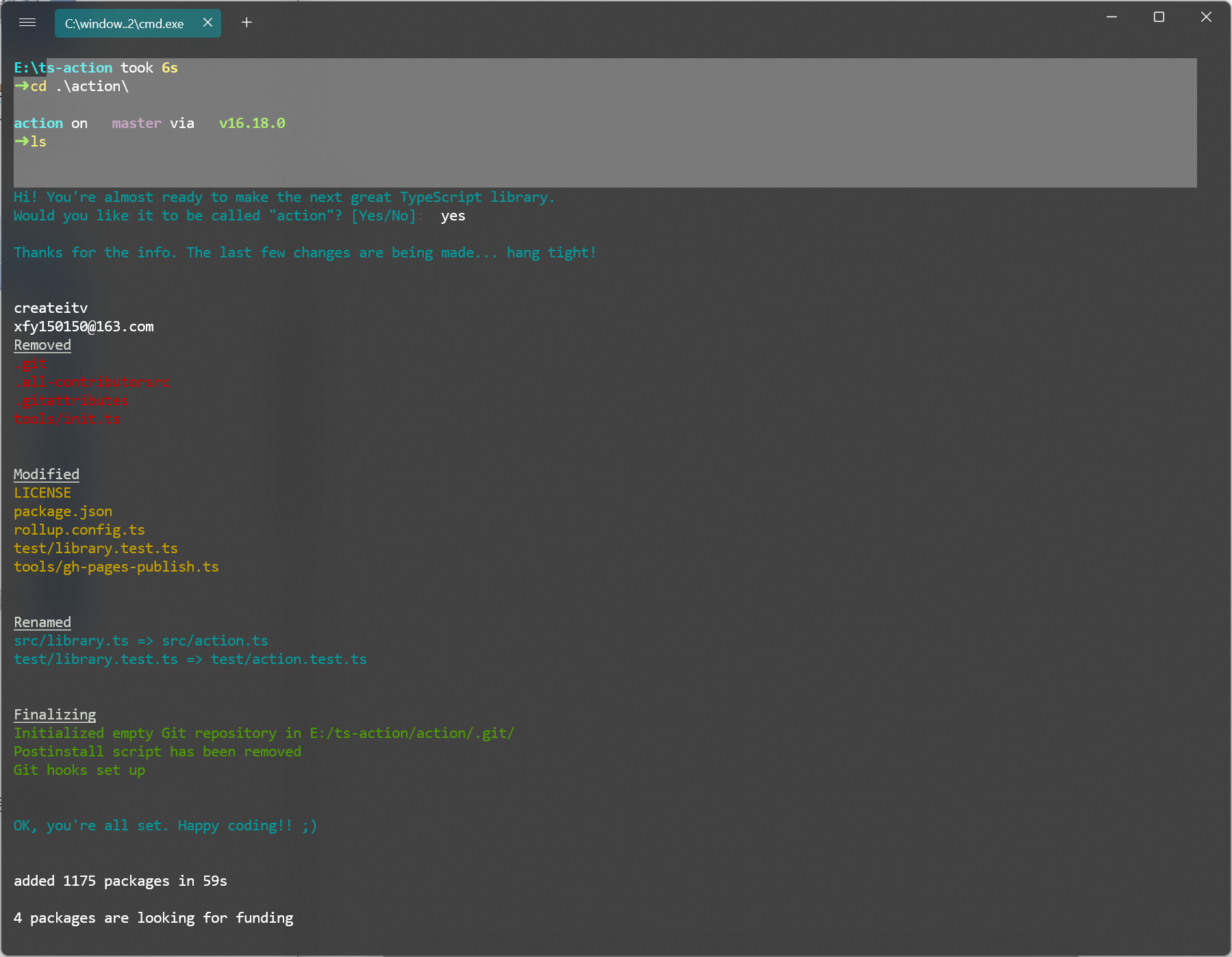ts-library-templates v1.1.1
ts-library-template
A template project that makes creating a TypeScript library extremely easy.

Features
- Zero-setup. After running
npm installthings will set up for you :wink: - RollupJS for multiple optimized bundles following the standard convention and Tree-shaking
- Tests, coverage and interactive watch mode using Jest
- Prettier and TSLint for code formatting and consistency
- Docs automatic generation and deployment to
gh-pages, using TypeDoc - Automatic types
(*.d.ts)file generation - Travis integration and Coveralls report
- (Optional) Automatic releases and changelog, using Semantic release , Commitizen , Conventional changelog and Husky (for the git hooks)
Usage
git clone https://github.com/Createitv/ts-library-template.git YOURFOLDERNAME
cd YOURFOLDERNAME
# Run npm install and write your library name when asked. That's all!
npm installStart coding! package.json and entry files are already set up for you, so don't worry about
linking to your main file, typings, etc. Just keep those files with the same name.
Importing library
You can import the generated bundle to use the whole library generated by this starter:
import myLib from 'mylib'Additionally, you can import the transpiled modules from dist/lib in case you have a modular
library:
import something from 'mylib/dist/lib/something'NPM scripts
npm t: Run test suitenpm start: Runnpm run buildin watch modenpm run test:watch: Run test suite in interactive watch modenpm run test:prod: Run linting and generate coveragenpm run build: Generate bundles and typings, create docsnpm run lint: Lints codenpm run commit: Commit using conventional commit style (husky will tell you to use it if you haven't :wink:)npm run semantic-release:local: local release (dry-run)
Excluding peerDependencies
On library development, one might want to set some peer dependencies, and thus remove those from the final bundle. You can see in Rollup docs how to do that.
Good news: the setup is here for you, you must only include the dependency name in external
property within rollup.config.js. For example, if you want to exclude lodash, just write
there external: ['lodash'].
Automatic releases
Prerequisites: you need to create/login accounts and add your project to:
To enable deployment, you will need to:
- Setup
NPM_TOKENsecret in GitHub actions (Settings > Secrets > Actions) - Give
GITHUB_TOKENwrite permissions for GitHub releases (Settings > Actions > General > Workflow permissions)
From now on, you'll need to use npm run commit, which is a convenient way to create conventional
commits.
Automatic releases are possible thanks to semantic release, which publishes your code automatically on GitHub and npm, plus generates automatically a changelog. This setup is highly influenced by Kent C. Dodds course on egghead.io
Git Hooks
There is already set a precommit hook for formatting your code with Prettier :nail_care:
By default, there are two disabled git hooks. They're set up when you run
the npm run semantic-release-prepare script. They make sure:
- You follow a conventional commit message
- Your build is not going to fail in Travis (or your CI server), since it's
run locally before
git push
This makes more sense in combination with automatic releases
What is npm install doing on first run?
It runs the script tools/init which sets up everything for you. In short, it:
- Configures RollupJS for the build, which creates the bundles
- Configures
package.json(typings file, main file, etc) - Renames main src and test files
What if I don't want git-hooks, automatic releases or semantic-release?
Then you may want to:
- Remove
commitmsg,postinstallscripts frompackage.json. That will not use those git hooks to make sure you make a conventional commit - Remove
npm run semantic-releasefrom.travis.yml
What if I don't want to use coveralls or report my coverage?
Remove npm run report-coverage from .travis.yml
3 years ago




